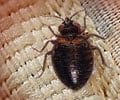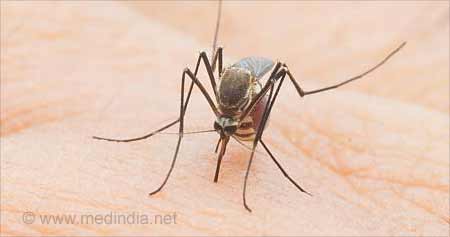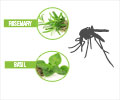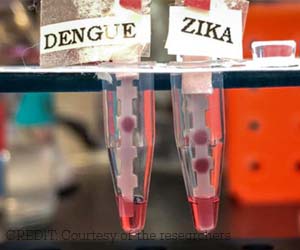Global warming is on the rise, know more about the measures available to protect against mosquito-borne diseases.
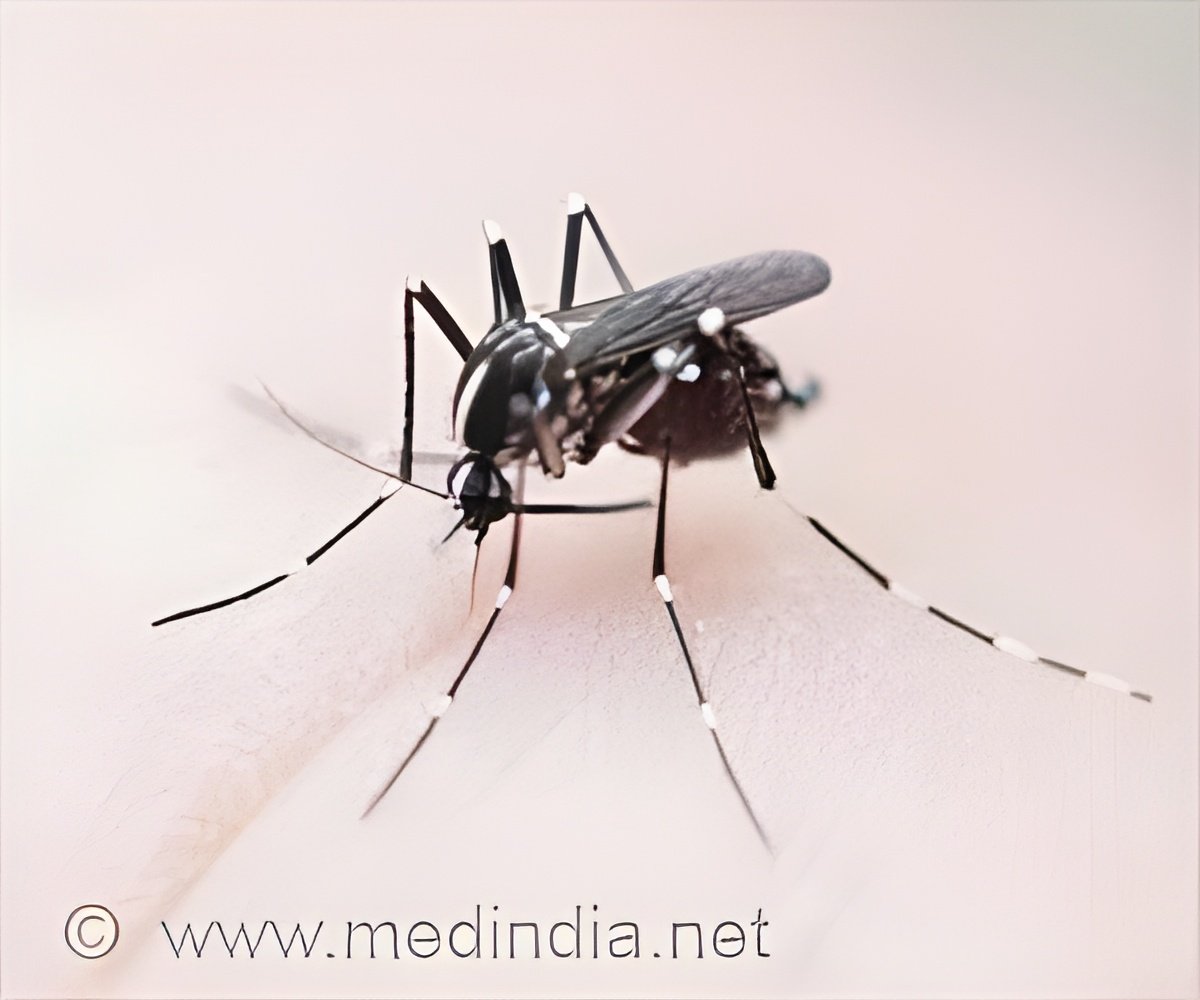
In a Warming World, Public Needs to Know More About Protections From Mosquito-Borne Illnesses
Go to source). As of October 1, the Centers for Disease Control and Prevention (CDC) reported 880 cases of West Nile virus in the United States for this year, confirming that it remains the primary viral disease transmitted by mosquitoes in the country. However, West Nile virus is not the sole mosquito-borne illness garnering attention. This month, public health officials in California issued a warning regarding an "unprecedented" outbreak of dengue fever. In addition, in August, a man from New Hampshire succumbed to Eastern equine encephalitis (EEE).
CNN summarized: “This summer has brought a flurry of warnings about cases of mosquito-borne illnesses, including malaria, dengue, and Eastern equine encephalitis."
A mere 15% of the American population expresses concern that they or their families may contract dengue or West Nile virus in the upcoming three months, as indicated by the most recent health knowledge survey conducted by the Annenberg Public Policy Center (APPC). This nationally representative survey, which included over 1,700 U.S. adults and was carried out from mid to late September, reveals that public awareness regarding these mosquito-borne illnesses and their prevention is inconsistent.
“As Dr. Fauci’s experience reminds us,” said Kathleen Hall Jamieson, director of the Annenberg Public Policy Center and director of the survey, “you don’t have to travel to exotic places to come in contact with mosquitoes able to cause serious illness. They may be lurking in your own backyard.”
‘Did You Know?
Mosquitoes spread viruses through bites and can cause Dengue, Zika, West Nile, Yellow fever, and Chikungunya. Mosquitoes can also transmit parasites which can lead to infections like malaria and filariasis. The mosquito-borne diseases can be prevented by implementing protective strategies and promoting community engagement. #Dengue #mosquito-borne diseases #medindia’





Mosquitoes spread viruses through bites and can cause Dengue, Zika, West Nile, Yellow fever, and Chikungunya. Mosquitoes can also transmit parasites which can lead to infections like malaria and filariasis. The mosquito-borne diseases can be prevented by implementing protective strategies and promoting community engagement. #Dengue #mosquito-borne diseases #medindia’
Advertisement
How do Dengue Fever and West Nile Virus Get Transmitted
Infected mosquito, the main cause: People can become infected with dengue fever or West Nile virus by the bite of an infected Aedes mosquito. Nearly three-quarters (74%) of those surveyed know that according to scientists, it is likely to be infected with these viruses through this vector.Sneezing and coughing, the unlikely way: Many people are uncertain about whether scientists think someone can become infected with dengue fever or West Nile Virus from being sneezed or coughed on by someone who is infected with the viruses. People do not get infected this way, the CDC says, but only a third (34%) say scientists think it is unlikely people can get it this way. A quarter (26%) think, incorrectly, that scientists believe this is a way to become infected and 39% are not sure.
Advertisement
Know the Symptoms Associated with West Nile Virus
Despite the finding that most people know one can become infected with dengue fever or West Nile virus via a mosquito bite, many are unaware of the symptoms of West Nile virus. When presented with a list of symptoms, both true and not, well under half selected the symptoms of West Nile virus identified by the CDC.The percentage of people who chose these CDC-identified symptoms of West Nile virus:
- 42% fever
- 37% muscle and joint pain
- 36% headache
- 29% nausea and vomiting
- 22% rash
- 28% dizziness or light-headedness
- 11% firm, round, painless sore
Advertisement
Varying Views on How Dengue Fever Outbreaks are Caused
Scientists are using genetically modified (GM) mosquitoes to control the mosquito population in parts of the world, including Brazil, Panama, and India. These GM mosquitoes are produced so that the female offspring do not survive into adulthood, limiting the size of the population and helping to minimize the spread of mosquito-borne illnesses.In our survey, a few respondents (16%) believe that genetically modified mosquitoes have caused dengue fever outbreaks, while 36% correctly know this is false and 48% are not sure. More people believe genetically modified mosquitoes could help minimize the spread of dengue viruses: 36% say this statement is true and 16% say it is false. As with the negative effects of the genetically modified mosquito, 48% are not sure whether this is true or false.
According to the CDC, the Aedes mosquito, which carries the dengue virus, is not found in every state in the continental United States. Nearly 4 in 10 people (38%), however, incorrectly believe that these mosquitoes can be found in every state of the continental United States. More than a fifth (22%) correctly say that statement is false and 40% are not sure.
- Preventing dengue and West Nile virus: Nearly 8 in 10 (79%) correctly believe that the best defense against dengue and West Nile virus is by preventing mosquito bites and controlling mosquitoes in or around the home, while 17% percent are not sure, and 4% percent believe that statement to be false.
- Antiviral treatment: Currently there is no antiviral treatment for dengue fever or West Nile virus. Only about a quarter (23%) know this is true, 15% believe it to be false, and most (62%) are not sure.
Implementing Measures to Prevent Mosquito Bites
The CDC advises individuals to take steps to protect themselves from mosquito bites that can make them sick. In our survey, about 6 in 10 people (59%) say they routinely take precautions to avoid getting mosquito bites at any time of year – significantly fewer than the roughly two-thirds (67%) who said so in an APPC survey conducted in the summer of 2016 during the Zika outbreak. Over a third today (37%) say they do not routinely take precautions.Among those who say they routinely take such precautions today, we asked each to indicate what they do from a list of actions:
- The precaution that most say they take to avoid getting mosquito bites is to remove standing water (80%), followed by wearing insect repellent (72%). Both percentages are unchanged from when we previously asked about them, in July 2016.
- Seven in ten (70%) avoid activities or areas that would bring them in contact with mosquitoes, a significant increase from the 63% who said this in July 2016.
- 64% say they routinely replace or repair window screens, unchanged from July 2016.
- 57% say they wear long-sleeved shirts or other protective clothing outdoors, significantly higher than the 52% who reported doing this in July 2016.
- Few (12%) routinely use mosquito netting, about the same as July 2016.
Combination of Insect Repellent and Sunscreen to be Used: Know the Order to Apply Them
Insect repellent is one of the primary ways to prevent mosquito bites, but when outside in the sun, it is also important to apply sunscreen to protect against harmful ultraviolet (UV) rays. We asked respondents what the CDC recommends as the proper way to apply both insect repellent and sunscreen together.Generally, about 3 in 10 respondents (29%) correctly know that the CDC recommends that one should put on sunscreen and let it dry before putting on insect repellent. Very few (5%) say that the CDC recommends the opposite (insect repellent first, then sunscreen) and 16% think the CDC guidance is that it does not matter in which order you put on sunscreen and mosquito repellent, but you should use both if you are in an area with mosquitoes. Both of these responses contradict what the CDC advises. Half (50%) are not sure what the CDC advises on this.
Apply Insect Repellent to Exposed Skin Only
The CDC advises people not to apply insect repellent on the skin under their clothing. Just 13% know that this is what the CDC recommends. Nearly half in total either say that the CDC recommends that people put insect repellent on their body and then put clothes on over the areas protected by the repellent (19%) or that the CDC says it does not matter whether you put repellent under your clothing (29%) but one should use insect repellent if they are in an area with mosquitoes. Four in 10 (39%) are not sure what the CDC recommends regarding this.Avoid the Use of Insect Repellent on Young Infants
Just over half of respondents (52%) indicate, correctly, that the CDC recommends that insect repellent should not be used on infants younger than 2 months old, but rather they should be dressed in clothing that covers their arms and legs and place mosquito netting over their cribs, strollers, and baby carriers. Under half (45%) say they are not sure of the CDC recommendation for applying insect repellent to an infant. Three percent incorrectly think the CDC recommends that insect repellent can be used on babies younger than 2 months old, which the CDC does not recommend.Insect Repellent Approved by Environmental Protection Agency (EPA) Must be Used
The CDC recommends that people look for an insect repellent that is registered with the EPA – a fact that just over 1 in 5 people (21%) know. Nearly a third of those (29%) surveyed think that the CDC’s recommendation on insect repellents is to use a product with over 50% Diethyltoluamide (DEET), while 6% think the CDC says to look for an insect repellent that says it is natural. A plurality (43%) is not sure what the CDC recommends on this question.DEET is the active ingredient in many insect repellents. While products with higher concentrations of DEET may last longer, the CDC says products containing 50% or more DEET provide no better protection than those with a lesser concentration of DEET.
Outcome of the ASAPH Survey Conducted by the Annenberg Public Policy Center
The survey data come from the 21st wave of a nationally representative panel of 1,744 U.S. adults conducted for the Annenberg Public Policy Center by SSRS, an independent market research company. Most have been empaneled since April 2021. To account for attrition, small replenishment samples have been added over time using a random probability sampling design. The most recent replenishment, in September 2024, added 360 respondents to the sample. This wave of the Annenberg Science and Public Health Knowledge (ASAPH) survey was fielded Sept. 13-22 and Sept. 26-30, 2024. The margin of sampling error (MOE) is ± 3.5 percentage points at the 95% confidence level. All figures are rounded to the nearest whole number and may not add to 100%. Combined subcategories may not add to totals in the topline and text due to rounding.Reference:
- In a Warming World, Public Needs to Know More About Protections From Mosquito-Borne Illnesses - (https://www.annenbergpublicpolicycenter.org/in-a-warming-world-public-needs-to-know-more-about-protections-from-mosquito-borne-illnesses/)
Source-Eurekalert


